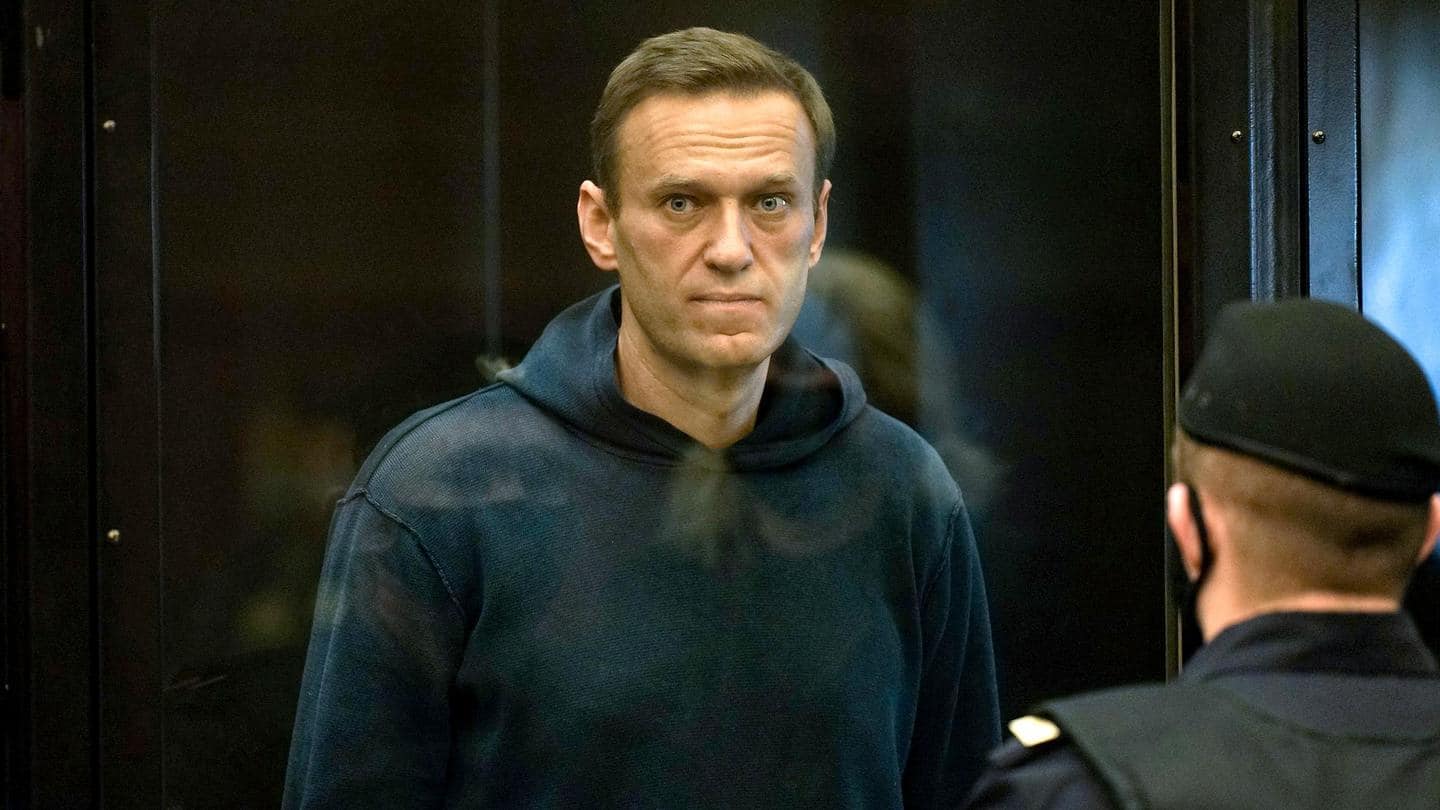
Moscow court orders Kremlin's foe Navalny to prison
What's the story
A Moscow court on Tuesday ordered Russian opposition leader Alexei Navalny to prison for more than two-and-a-half years, finding that he violated the terms of his probation while recuperating in Germany from nerve-agent poisoning. The ruling ignited protests in Moscow and St. Petersburg.
Navalny had denounced the proceedings as a vain attempt by the Kremlin to scare millions of Russians into submission.
Protests
Verdict announced despite calls to free the anti-corruption campaigner
After the verdict was announced around 8 pm, protesters converged on areas of central Moscow and St. Petersburg's main avenue, Nevsky Prospekt. Police grabbed demonstrators and put them in police vehicles. The protests lasted until 1 am. About 650 people were arrested.
The ruling came despite massive protests across Russia over the past two weekends and western calls to free the 44-year-old anti-corruption campaigner.
Accusations
Russian authorities deny Navalny was poisoned
The prison sentence stems from a 2014 embezzlement conviction that Navalny has rejected as fabricated and politically motivated.
Navalny was arrested on January 17 upon returning from his five-month convalescence in Germany from the nerve-agent attack, which he blamed on the Kremlin. However, Russian authorities deny any involvement.
Despite tests by several European laboratories, Russian authorities said there is no proof he was poisoned.
Quote
Putin will go down in history as a poisoner: Navalny
Navalny attributed his arrest to Putin's fear and hatred. "I have deeply offended him simply by surviving the assassination attempt that he ordered. The aim of this hearing is to scare a great number of people but you cannot jail the entire country." Navalny said.
2014 conviction
2014 conviction was unlawful and Russia paid compensation: Navalny
Russia's penitentiary service said Navalny violated the probation conditions of his suspended sentence from the 2014 conviction. It asked the court to turn his three-and-a-half-year suspended sentence into one that he must serve in prison, although about a year he spent under house arrest equals time served.
Meanwhile, Navalny emphasized that the European Court of Human Rights ruled that his 2014 conviction was unlawful.
Quote
Navalny argued that his rights were violated during arrest
Navalny was recovering in Germany from the poisoning and couldn't register with Russian authorities in person as required by probation. He said his due process rights were violated during the arrest. "I came back after the treatment. What else could I have done?" Navalny said.
Further details about protests
More than 5,700 people were detained during the protests
Thousands of people protested the past two weekends to demand Navalny's release and chanted slogans against Putin.
On Sunday, police detained more than 5,750 people nationwide, the biggest one-day total in Russia since Soviet times. Most were released after being handed court summons. They face fines or a jail term of seven to 15 days, although several face criminal charges of violence against police.
Quote
US came out in support of Navalny and demanded release
"We reiterate our call for the Russian government to immediately and unconditionally release Mr. Navalny and other Russian citizens wrongfully detained in recent weeks for exercising their rights, including the rights to freedom of expression," US Secretary of State Antony Blinken said after the ruling.
Police's atrocities
More than 320 people were detained before the ruling
Navalny's team had called for a demonstration on Tuesday outside the Moscow courthouse, but the police was out making random arrests. More than 320 people were detained.
Some Navalny supporters still managed to approach the building. A young woman held up a poster saying "Freedom to Navalny."
Before the ruling, police had cleared off Red Square and Palace Square in St. Petersburg, anticipating protests.
Quote
No one cares about my life: Navalny
"I am fighting and will keep doing it even though I am now in the hands of people who love to put chemical weapons everywhere and no one would give three kopecks for my life," Navalny said.
Russian politics
Kremlin fears Navalny can bury its election plans: Analyst
In court, Navalny thanked protesters for their courage and urged other Russians not to fear repression. "Millions cannot be jailed," he said.
Authorities want Navalny in prison, fearing he could run an efficient campaign against the main Kremlin party in September's parliamentary election. "He is capable of burying the Kremlin's plans regarding the outcome of the Duma election," said political analyst, Abbas Gallyamov.